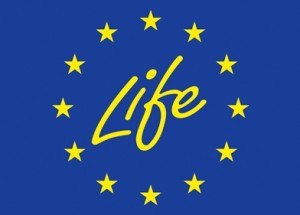Rotating Bioreactors for sustainable hydrogen Sulphide Removal (BIOSUR)
LIFE 11 ENV/IT/000075
Duration: 01/07/2012 – 31/12/2015
BIOSUR involves the application of an innovative technology for the treatment and control of odorous emissions. The technical feasibility of the new technology will be demonstrated through the design, development and management of a RBBTF plant (Rotating Bed Biotrickling Filter) in a pre-industrial scale for the biological hydrogen sulphide (H2S) removal from gaseous effluents.
Networking

LIFE BIOSUR


LIFE BIOCLOC

BIOprocess ControL through Online titrimetry to reduce Carbon footprint in wastewater treatment
LIFE 12 ENV/IT/000120
Duration: 01/01/2013 – 28/12/2017
The project will demonstrate the suitability of an innovative monitoring instrument for activated sludge process control, based on the online measurement of the nitrification rate. The new technology, based on online titrimetry, will allow to save energy and increase the quality of the effluent through the control of fundamental operating parameters, such as dissolved oxygen concentration and sludge retention time. This will reduce the carbon footprint of the treatment, while improving nutrient removal from wastewater.

LIFE RE MIDA

Innovative Methods for Residual Landfill Gas Emissions Mitigation in Mediterranean Regions
LIFE14 CCM/IT/000464
Duration: 01/01/2016 – 31/12/2018
The LIFE RE Mida Project is a demonstration project aimed at developing innovative technologies for landfill gas management with low calorific value, useful for reducing the greenhouse effect and mitigating the impacts due to trace gas emissions.

LIFE DENTreat

Decentralized Innovative treatment of Ammonium-rich urban wastewater
LIFE16 ENV / IT / 000345
Duration: 01/07/2017 – 30/06/2020
In the last ten years Digital Textile Printing (DTP) technologies have been revolutionizing the way textiles are printed, moving from large batches of standardized drawings to one square meter large’ lots, where every piece of the textile substrate may have different patterns and colours than the next one. Nowadays, in some European textile districts, DTP acquired more than 50% of the market.
Unfortunately, DTP requires the fabric to be fully pre-treated using urea in order to let the ink properly penetrate. Urea is then completely washed-out and the resulting wastewater is extremely rich in nitrogen. Current wastewater treatment plants suffer this nitrogen overload and the LIFE DeNTreat project comes with an actual answer: decentralised pre-treatment modules based on the ANAMMOX (ANaerobic AMMonium Oxidation) microbial process are expected to sustainably abate the ammonium pollution where it is created, reduce at least by 40% the investment and operational costs of nitrogen-rich wastewater treatment, minimize by 80% the N2O emissions during wastewater treatment, and produce sludge for less than 25% of the currently adopted technologies.

LIFE WEEE

Waste Electrical and Electronic Equipment (WEEE): treasures to recover!
LIFE16 GIE/IT/000645
Duration: 01/09/2017 – 31/08/2020
Waste of electrical and electronic equipment (WEEE) such as com-puters, TV-sets, fridges and cell phones is one the fastest growing waste streams in the EU. WEEE is a complex mixture of materials and components can cause major environmental and health problems. To improve the environmental management of WEEE and to contribute to a circular economy and enhance resource efficiency the improve-ment of collection, treatment and recycling of electronics at the end of their life is essential. To address these problems EU developed specific legislation on WEEE.
LIFE WEEE aims to maximize the collection of WEEE in Tuscany through a new governance model based on the involvement of SMEs and awareness raising activities towards citizens and its replication and testing in Andalucía.

LIFE BITMAPS

Pilot technology for aerobic Biodegradation of spent TMAH Photoresist solution in Semiconductor industries
LIFE15 ENV/IT/000332
Duration: 01/07/2016 – 31/12/2018
The LIFE BITMAPS project will establish a pilot plant that will demonstrate a new and never-before attempted process for the treatment of effluents from electronics and semiconductor manufacturing. The project will contribute to the implementation of the EU Water Framework Directive 2000/60/EC by introducing more efficient treatment technologies that will help reduce Tetramethylammonium hydroxide (TMAH) pollution at source. By recycling wastewater, it will also demonstrate the application in practice of the circular economy priority of water reuse and savings in industrial processes.

SMART-PLANT

Scale-up of low-carbon footprint material recovery techniques in existing wastewater treatment plants
HORIZON2020
Duration: 01/06/2016 – 31/05/2020
The project will prove the feasibility of circular management of urban wastewater and environmental sustainability of the systems and co-benefits of scaling-up water solutions through Life Cycle Assessment and Life Cycle Costing approaches.
SMART-Plant will scale-up in real environment eco-innovative and energy-efficient solutions to renovate existing wastewater treatment plants and close the circular value chain by applying low-carbon techniques to recover materials that are otherwise lost. 7+2 pilot systems will be optimized for more than 2 years in real environment in 5 municipal water treatment plants, including also 2 post-processing facilities. The systems will be automated with the aim of optimizing wastewater treatment, resource recovery, energy-efficiency and reduction of greenhouse emissions. A comprehensive SMART portfolio comprising biopolymers, cellulose, fertilizers and intermediates will be recovered and processed up to the final end-products.

LIFE MCUBO

Modelling, Measurement and Improvement of the water management environmental impact in the foodIndustry
LIFE15 ENV/ES/000379
Duration: 01/09/2016 – 31/09/2019
The main objective of the MCUBO Project is to minimize the environmental impact related to water management in the subsectors with the highest water consumption (meat, juices and canned vegetables) through an effective demonstration, at 3 industrial plants, of an integral management system based on:
– The implementation of a new low-cost wireless monitoring technology.
– Detailed modelling of the sub-sectors´ processes and the water management to propose improvement actions.
– The improvement actions will be validated in the specific pilot plant.
– Specific water management implementation on continuous improvement process in each company.

SIC2SIC

In bici attraverso la Rete natura 2000 Italiana
LIFE16 GIE/IT/000700
Durata 01/09/2017 – 01/02/2020
Il Progetto LIFE Sic2Sic intende promuovere una partecipazione attiva e consapevole della cittadinanza alla tutela della biodiversità nei siti della Rete Natura 2000. Il progetto Sic2Sic ha come obiettivi principali:
• la sensibilizzazione dei cittadini sul significato e sull’importanza della Rete Natura 2000;
• la promozione di comportamenti ecosostenibili nella fruizione del territorio (itinerari ciclistici e turismo sostenibile);
• la formazione di una cittadinanza attiva nella conoscenza e nel monitoraggio dell’ambiente;
• l’attivazione di un modello collaborativo tra tutti i soggetti che compongono la governance territoriale, come modello di azione di policy per moltiplicare i benefici economici e sociali della Rete.
Nell’arco di due anni un gruppo di esperti del progetto (ricercatori ambientali, economisti di sviluppo territoriale, comunicatori e guide cicloturistiche) collegherà in bicicletta oltre 170 siti della Rete Natura 2000 italiana, percorrendo circa 6.000 km e attraversando 7 regioni rappresentative delle diverse realtà biogeografiche, naturalistico-culturali e socioeconomiche d’Italia.

MEWLIFE

MicroalgaE biomass from phototrophic-heterotrophic cultivation using olive oil Wastewaters
LIFE17 ENV IT 000180
Duration: 01/07/2018 – 30/09/2021
MEWLIFE is a LIFE project aiming to demonstrate the environmental benefit and economic feasibility of an innovative approach to produce microalgal biomass in an integrated phototrophic – heterotrophic cultivation system using preconcentrated (in a membrane filtration plant) olive oil wastewaters as carbon source for growing algae, thus contributing to waste reuse and valorization. MEWLIFE is a project that involves six partners located in Italy and Greece. The leader of the project is NextChem, a company that provides process services for the chemical, petrochemical, oil & gas, environmental and energy industries. The other partners involved in the MEWLIFE project are: BIO-P, HTR, Labor, Megara, Technosind.







